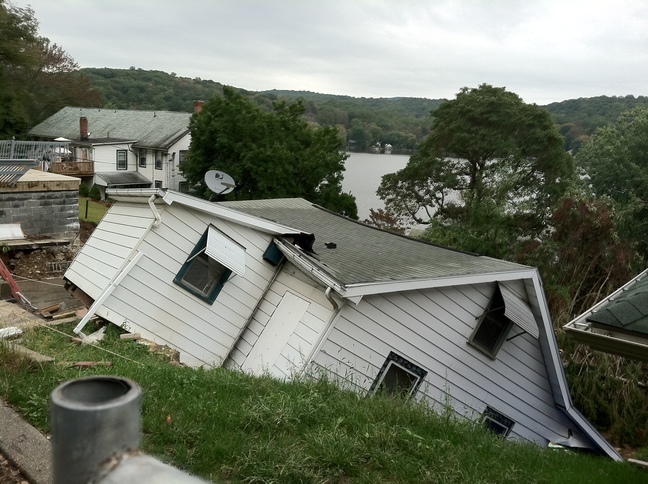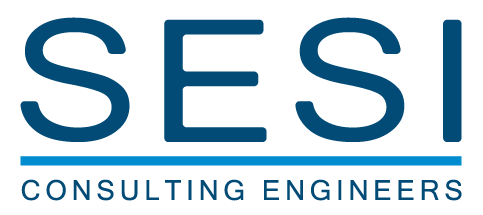SESI is hiring for Geotechnical, Environmental, and Site Civil positions. Apply Now!
Mitigating Risk in Land Development Projects: Strategies for Success
February 01, 2025

Land development is a multifaceted process that involves extensive planning, rigorous assessments, and regulatory navigation. Each project, whether for commercial, industrial, or mixed-use purposes, comes with its own set of risks—geological uncertainties, environmental concerns, legal requirements, and financial constraints. Successfully mitigating these risks is essential to ensuring that a project remains viable, cost-effective, and compliant with regulatory mandates.
At SESI Consulting Engineers, we specialize in helping developers and project owners navigate the complexities of land development while minimizing risks. With nearly five decades of expertise in geostructural engineering, site assessments, and regulatory compliance, SESI provides comprehensive solutions that keep projects on track. Unlike many firms that compartmentalize services, SESI fosters a collaborative, multidisciplinary approach to ensure clients receive the highest efficiency and innovation.
This article will explore the critical strategies developers should employ to mitigate risks in land development. From site assessments to engineering solutions and regulatory compliance, we will break down each step necessary to develop confidently while avoiding costly setbacks.
Conducting Thorough Site Assessments
A thorough site assessment is the foundation of any successful land development project. This phase identifies potential challenges—unstable soils, contamination risks, zoning limitations, and environmental factors—before they become costly problems. Developers who invest in early assessments can proactively address issues and avoid last-minute disruptions that lead to financial overruns.
Geological and Geostructural Analysis
Understanding the subsurface conditions of a site is crucial for designing a stable and sustainable development. Without a proper geostructural assessment, projects may face challenges such as soil instability, groundwater interference, and excessive settlement.
- Soil Composition and Load-Bearing Capacity – The soil's ability to support structures must be evaluated to determine whether additional reinforcement is needed. Techniques such as deep dynamic compaction can be employed to improve soil stability and reduce the risk of settlement.
- Bedrock and Groundwater Assessment – Sites with shallow bedrock or high groundwater levels can pose construction challenges. Identifying these issues early allows for the implementation of appropriate foundation solutions, such as drilled piers or dewatering strategies.
- Mitigating Differential Settlement – Uneven soil conditions can lead to structural failures. SESI engineers analyze settlement patterns and recommend measures to prevent long-term stability issues.
Additionally, geotechnical assessments help determine the suitability of materials used for infrastructure. Certain soils may be prone to expansion or contraction, leading to foundation instability over time. Conducting rigorous soil tests ensures that appropriate engineering measures are applied early in the planning phase.
Environmental Due Diligence
Environmental risks can significantly impact a project's feasibility. Conducting a Phase I Environmental Site Assessment (ESA) ensures compliance with federal and state environmental regulations.
- Contaminated Sites – Land that has been previously used for industrial or commercial purposes may have hazardous materials requiring remediation. Identifying and addressing contamination early prevents unexpected remediation costs.
- Wetlands and Floodplain Considerations – Wetlands and flood zones are heavily regulated. SESI helps developers navigate the complexities of securing permits while ensuring their projects do not violate environmental laws.
- Stormwater Management Compliance – Regulatory agencies have intensified their scrutiny of stormwater runoff, requiring developers to implement sustainable drainage solutions. SESI’s expertise in stormwater compliance ensures projects adhere to new NJDEP regulations.
Wetland mitigation banking is also an important aspect of environmental compliance. By purchasing wetland credits, developers can offset their impact on environmentally sensitive areas while maintaining project feasibility. SESI provides guidance on incorporating mitigation banking into project planning.
Furthermore, long-term environmental monitoring strategies should be considered. Routine assessments of groundwater quality, soil integrity, and air quality ensure compliance beyond project completion. SESI provides ongoing environmental oversight to help developers remain compliant with shifting regulatory landscapes.
Navigating Regulatory Compliance and Permitting
Regulatory compliance is one of the most critical aspects of land development. The permitting process can be time-consuming, and failure to adhere to municipal, state, or federal regulations can lead to project delays or financial penalties. SESI’s deep knowledge of regulatory frameworks ensures smooth navigation through complex approval processes.
Understanding Local and State Regulations
Each municipality has specific zoning codes and land use regulations that govern what can be built and how the development must proceed. Working with an experienced consulting firm helps developers remain compliant while expediting approvals.
- Zoning and Land Use Approvals – Securing zoning variances or special-use permits requires strategic planning and negotiation with planning boards. SESI’s longstanding relationships with municipal authorities facilitate this process.
- Environmental Permits – Permitting for stormwater runoff, erosion control, and wetland impacts can be challenging. SESI manages these applications to prevent compliance-related setbacks.
- Construction Permitting – Ensuring proper documentation for site grading, drainage plans, and infrastructure development helps projects move forward without bureaucratic delays.
Navigating these processes efficiently requires an in-depth understanding of the regulatory environment. SESI’s regulatory specialists help streamline the approval timeline by ensuring documentation meets all jurisdictional requirements.
Enhancing Sustainability and Resilience in Development
A successful land development project meets current regulations and anticipates future environmental and structural challenges. Incorporating sustainability and resilience measures can lead to long-term project success.
Integrating Resilient Infrastructure
- Climate-Adaptive Design – Planning for climate variability ensures developments withstand extreme weather events, reducing repair costs and potential liabilities.
- Energy-Efficient Site Planning – Implementing energy-efficient design elements, such as reflective roofing and passive solar heating, enhances project sustainability.
- Stormwater Solutions – Using bioswales, permeable pavements, and natural retention basins can improve stormwater absorption and reduce runoff impact.
Long-Term Risk Management Strategies
- Routine Structural Assessments – Conducting periodic inspections ensures infrastructure integrity over time.
- Community and Stakeholder Engagement – Collaborating with local communities ensures projects meet social and environmental expectations while reducing opposition risks.
- Compliance Check-Ins and Updates – Regulations evolve, and maintaining compliance with updated requirements ensures projects remain viable in the long term.
Conclusion
Successful land development requires meticulous planning, regulatory foresight, and strategic engineering solutions. By engaging expert consultants like SESI early in the process, developers can mitigate risks, streamline approvals, and ensure projects remain on budget. Understanding the nuances of site assessments, environmental due diligence, regulatory requirements, and geostructural engineering provides the foundation for successful project execution.
Additionally, having a long-term risk management plan post-construction ensures sustainability. Ongoing inspections, compliance monitoring, and infrastructure maintenance can prevent costly repairs and liabilities in the future. SESI Consulting Engineers offers tailored risk mitigation strategies that support developers at every stage of the project lifecycle.
SESI Consulting – Your Trusted Development Partner
At SESI Consulting Engineers, we provide tailored risk mitigation solutions for land development projects. With a proven track record in geostructural engineering, environmental compliance, and regulatory navigation, we empower developers to build with confidence.
Ready to get started? Contact SESI today to schedule a consultation and explore how our expertise can support your next project.




